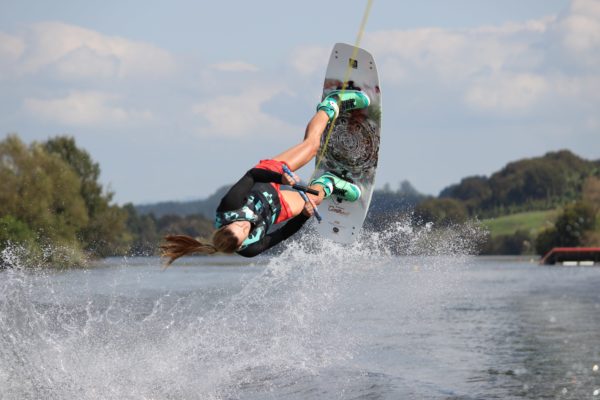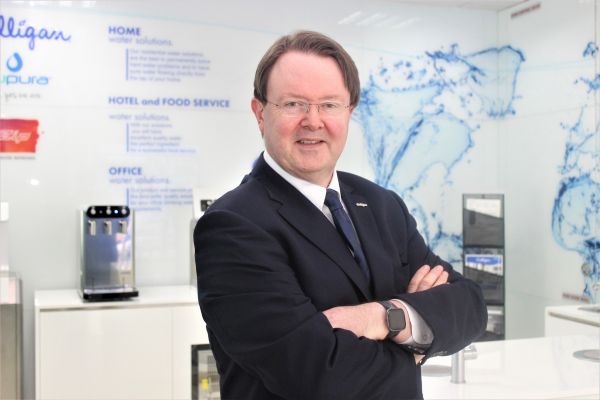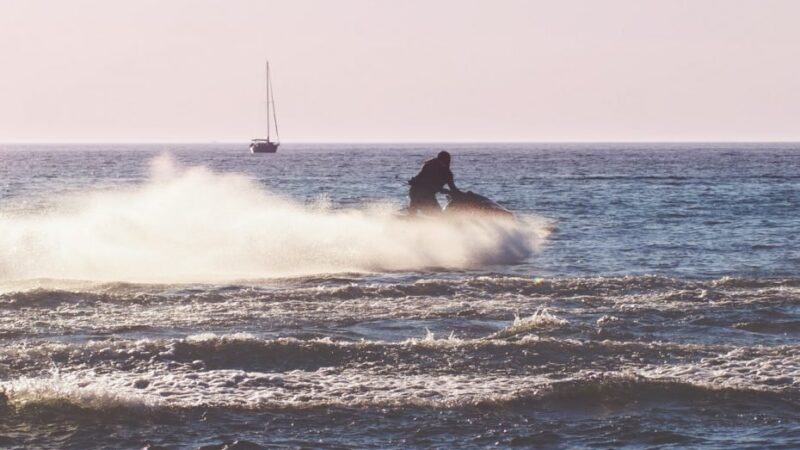LockerRoom
Charlotte Broadbent isn’t fazed that her wakeboarding rivals are half her age.
Or that she’s had to balance her comeback to the top of the sport with running her business as a water engineer, and with raising two sons.
She’s not worried, either, that it’s a physically perilous sport – where she’s suffered a few concussions, and once gashed her head open, crashing at speed.
No, nothing seems to rattle Broadbent, who throws herself into her sport with a passion. At 42, she’s far from giving it up – especially as she’s about to compete in her first wakeboarding world championships.
“It’s certainly a challenge, being a working mum and competing. But I’m glad I do it,” she says. “Mentally I would struggle if I didn’t keep up my sport.”
Ranked the No. 2 woman in wakeboarding in New Zealand behind 22-year-old Morgan Haakma, Broadbent wants to encourage more young girls to take up the sport, but also wants to see more women return to it.
“You don’t have to give it all up because you have children. You’ve just got to roll with the changes and enjoy life,” she says.
You could call the Broadbent family water-sport royalty in New Zealand. Charlotte’s husband, Gavin, comes from a family who dominated water skiing in this country around the 1980s.
He’s since extended his dominion to a handful of water sports. A seven-time national water ski champion, he was one of the first kiteboarders in the world to break the 50 knot speed barrier. And he’s also claimed a world crown in wakeboarding.
At this year’s wakeboard nationals, a new generation of Broadbents stepped on to the podium – with Charlotte and Gavin’s eldest son, Fletcher, winning bronze in the under eights class.
Charlotte Broadbent was first introduced to the sea by her sailing father; she remembers being “dragged out” on his yachts, but not falling in love with it. She played a myriad of sports, excelling in cricket, where she played for the Auckland second XI.
“I first had a go at wakeboarding with friends when I was in my early 20s,” she says. “But, to do wakeboarding, you really have to have a boat. So I took up snowboarding instead, because all you needed was a car and a snowboard.”
It wasn’t until she was 29 that she returned to wakeboarding – as a spectator, watching the nationals at Lake Karapiro. It was there she met Gavin, who’d played a part in developing the sport in New Zealand since 1993, and won the first NZ men’s wakeboard title back in 1999.
As their relationship grew, so did Charlotte’s wake boarding skills. They bought a ski boat and she learned to cross and jump the wake and tail grab (grabbing the back tip of the wakeboard) on the upper reaches of the Waitemata Harbour.
She first scaled to the top of the sport when New Zealand’s best wakeboarder was Andrea Fountain – a 10-time national champion who also won the 2005 world title in Russia.
“I really looked up to her, and I was motivated to do all the tricks she could do,” she says.

From her first competition in 2008, Broadbent had to settle in Fountain’s wake. And just when Fountain decided to call it a day, Broadbent took a break to have her first baby. “My timing was just a little off,” she laughs.
Her return to the water was slow – Fletcher’s delivery by caesarean section left her “in a pretty bad way… after a year, I was still in pain running. It was a pretty brutal recovery.”
Broadbent finally claimed her first national title in 2013 – not long before second son, Harley, was born. She admits coming back when Harley was just two months old may have been a little optimistic (she crashed heavily, but still finished third).
As babies, it wasn’t hard packing the boys in the boat while their parents trained. But, as they got mobile, the Broadbents took a break from the water – taking up downhill and enduro mountain bike racing instead.
Two summers ago, the Broadbents returned to wakeboarding, as Fletcher (now eight) was keen to give the sport a go. At five, Harley still has to be coerced into the water.
Their mum found it testing getting back to the elite level she’d once competed at
“I felt like I was a novice all over again. By the end of that first season, I’d built back up to my old tricks, but I was pretty sore, too,” she says.
“Wakeboarding is tremendously hard on your body.”
In a competition, the ski boat pulls the rider onto the course, which is long enough to pull off five tricks one way, and another five on the return leg. A rider can have one fall, and be picked up to carry on. But fall again, and you’re out. There’s not a lot of room for error.
It’s a highly subjective sport – riders are judged on their execution of each trick, the intensity (height, risk and technical difficulty) and the composition (variety and flow of the tricks).
Broadbent found she had to do a lot more core strength work over winter – somehow fitting a home-based workout into a working mum’s day.
It paid off this summer, when she won the North Island open women’s title and then engaged in her best battle yet with Haakma at the nationals. “We both rode really well, but she just pipped me at the post,” Broadbent says.
“But I was really proud to watch Morgan ride so well. She’s 20 years younger than me, but we’re friends off the water. It’s been fantastic watching her grow.”
Haakma – from Cambridge but training in the United States – has been competing since she was 10. She won the world amateur women’s division at the 2017 wakeboard world champs in Toronto.
“She has so much more potential for the future,” Broadbent says. “And I’m not planning on quitting right now, so I can keep providing her with competition to prepare her for the world stage.”
Both women were chosen to represent New Zealand in the open women at this year’s world championships in Abu Dhabi in November, but Broadbent has decided to compete only in the veterans (over 40) class.
“Since I have the opportunity to compete in my age group for the first time in my life, I’ll take it!” Broadbent laughs.
Gavin Broadbent, who won the veteran men’s world title in 2007, will be competing for New Zealand again: “We call ourselves the Vet Squad”.
Preparing for the heat of Abu Dhabi is difficult when the lakes the Broadbents train in right now are a chilly eight degrees celsius. “It’s a bit of an icy rinse when you fall in,” Charlotte says.
But she expects the biggest challenge she will face is being parted from her sons for the first time since they were born.
It’s not so hard taking time away from work when you’re the boss. A civil engineer, Charlotte is a director of Watershed, a firm she founded that deals with wastewater, stormwater and water supply. She can’t keep away from water, she laughs.
She’s now on also on the board of Wake NZ, the sport’s national body, and is “motivated to push the sport along”, and overcoming the obstacles she first faced.
“We struggle to get girls into competition,” she says. “You’re tied to needing a boat, so you’re relying on family or friends to get you on the water. That’s a barrier for girls that I want to work towards breaking down.”





Recent Comments